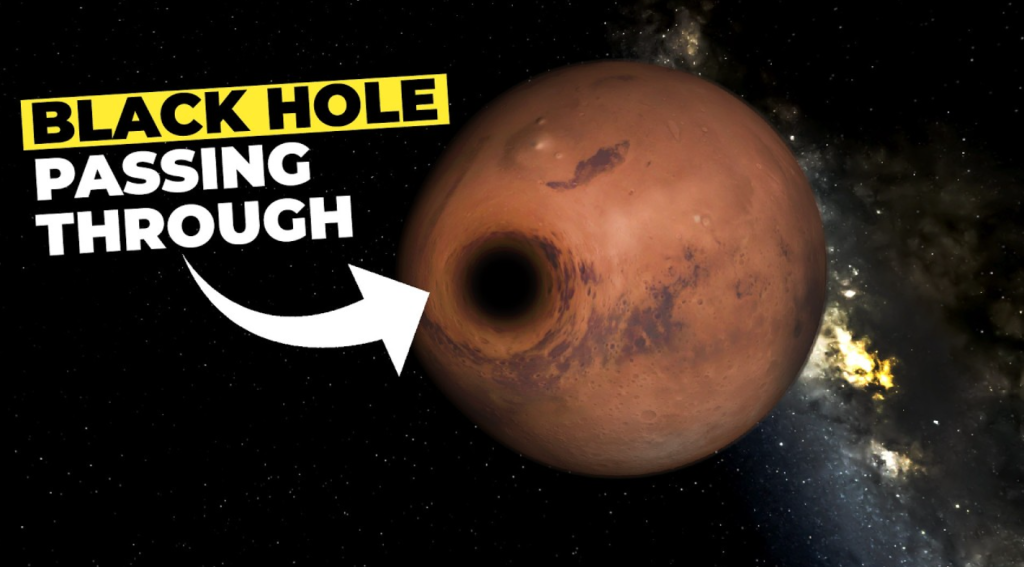A new study suggests that tiny primordial black holes might be passing through our solar system, and although these black holes are incredibly small—about the size of an atom—they have the mass of an asteroid. Despite their dense nature, these black holes don’t cause chaos as they pass through space. Their small size allows them to slip by without colliding with anything, but they could create tiny ripples in space, much like a pebble causing a ripple in a pond.

One of the most exciting aspects of these black holes is their potential to help solve the mystery of dark matter. Primordial black holes are believed to have formed just after the Big Bang, when the universe was still in its early, chaotic stages. The universe had huge density fluctuations, and some regions collapsed into these tiny but powerful black holes. These black holes may have been traveling through the universe ever since, possibly even passing through our solar system about once every decade.
Because these primordial black holes are so small and don’t emit light, they are almost impossible to detect. They don’t shine like stars, making them invisible—much like ghosts in space. The only way to detect them is by observing how their gravitational pull affects nearby objects. This is where Mars comes in. We have been tracking Mars’s orbit and position with incredible precision for decades. If a primordial black hole passed through the solar system, its gravitational pull could cause a tiny wobble in Mars’s orbit, much like a slight nudge making a billiard ball shift just a little on a table. These tiny wobbles—just a few feet over several years—could be detected thanks to the high precision of our technology, such as NASA’s Mars orbiters.
These tiny black holes might not just help us detect gravitational ripples—they might also be a key to understanding dark matter. While dark matter doesn’t emit light and has never been directly observed, its effects can be seen through gravity, and it makes up around 85% of the universe’s matter. Some scientists speculate that primordial black holes, formed in the early universe, could actually be dark matter. If we find evidence of these black holes, it could change our understanding of dark matter and the universe as a whole.
While these black holes are too small to pose any danger to Earth, their discovery would significantly impact our understanding of the cosmos. From the formation of galaxies to the expansion of space, it could reshape how we view the universe. Scientists are already using data collected from Mars’s orbiters to look for signs of these tiny black holes. The next few years will be crucial as they search through decades of data, looking for even the smallest signs that could reveal the presence of these elusive objects. If they succeed, it could revolutionize our understanding of the universe.